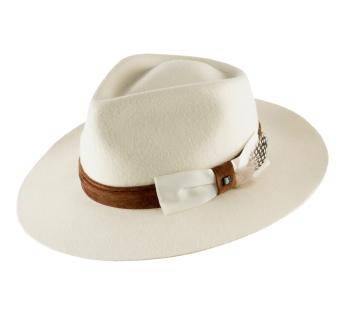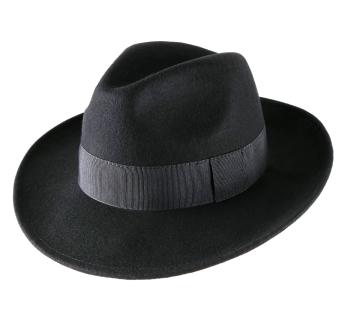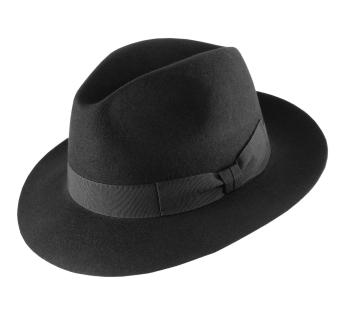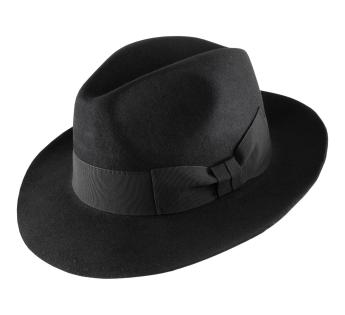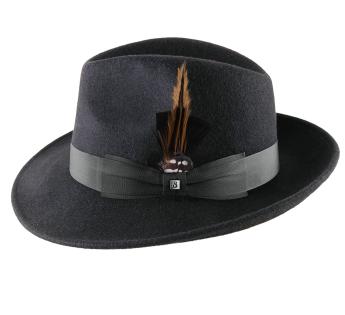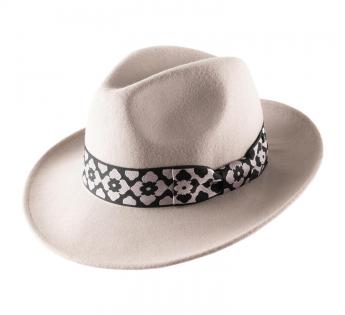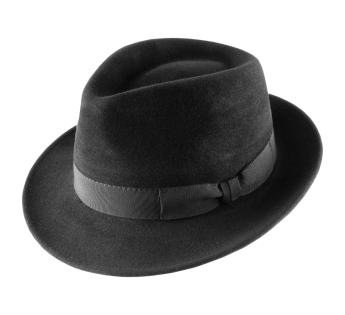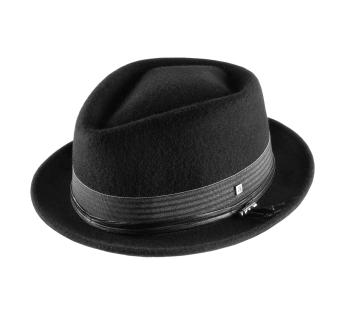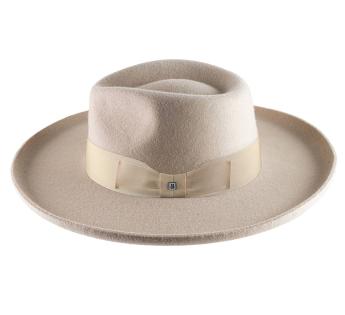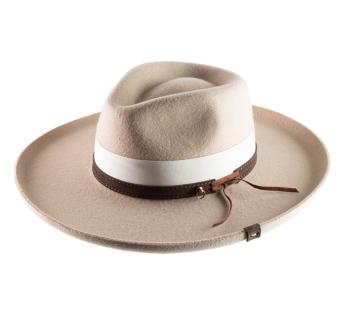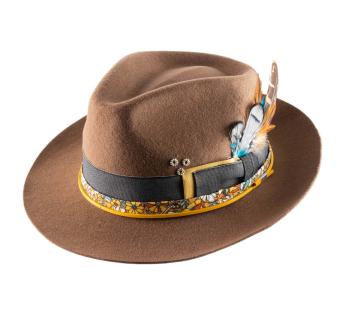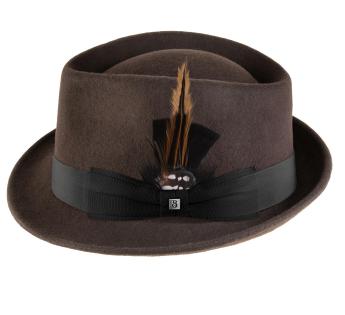Determining felt quality of your hat.
Water-repellent
Smell-free
Insulating
Lasting
Determining the quality of a felt.
Our system X
| Grade | Density g/cm3 |
Examples of Felts | Properties generally found |
| <0.16 | Soft felt - Wool or synthetic | Soft and unshaped | |
| X | 0.18 | Wool felt | Low resistance to deformation |
| XX | 0.20 | Wool felt | Medium resistance to deformation |
| 5X | 0.23 | Wool felt Litefelt | Good resistance to deformation |
| 10X | 0.25 | Wool & rabbit hairs mix | Good resistance to deformation Lighter |
| 20X | 0.27 | FurFelt -Rabbit hairs | Good resistance to deformation Naturally waterproof Lightweight |
| 50X | 0.29 | FurFelt - Beaver, rabbit or mix | High durability Naturally waterproof Lightweight |
| 100X | 0.31 | FurFelt - Beaver | Great longevity Naturally waterproof Modelable and very light |
The System X is a rating system that has been created to try to assess the quality of all hats around the world. On some hats, you will see on the inside headband an inscription indicating the number of Xs (20X for example). The more there are Xs, the more the hat is of quality.
Defining the quality of a felt
Quality is a subjective notion. It could be the capacity of a hat to be foldable and regain its shapes; it could be its capacity to withstand rain; its capacity to keep its shapes regardless of the side from which blows the wind; even its capacity to maintain its initial color.
But a difference can be made as for the density of the felt. The more the fibres are tightened, the more the hat will be lively and keep its shape. A high density hat will be less vulnerable to stains and rain because its fibres will be more ‘’welded’’. A way to test the density? Press a needle into the felt. You will feel a strong resistance when the density is high, and then its quality is optimum.
Felt is not woven, does not fray and last long!
Felt is a textile made of wool and/or fur fibres that overlap due to the combination of heat, water and pression. Because this is a non-woven material, it does not fray and is relatively long-lasting. Its origins have been located in the Ancient Greece but its at the end of the nineteenth century when felt hats began to show off into the US. There are two felt types: the wool felt, the less expensive, and the fur felt which is more durable.
Final processing
The felt can present different aspects depending on the final processing.
Short felt: for a smooth aspect. The felt is sanded with sandpaper.
Flemish felt: imitates the fur. Hairs are pulled with a metal brush.
Velvet felt, brushed felt: imitates the velvet. Hairs are pulled with the skin of a dogfish and then cut. It is the quality that demands the longest time to acheive.
So, wool or fur?
A wool fur hat will proudly maintain its colors, stand up the heavy wear at ease and keep its finishing touches unspoilt. Ritch Rand says, «There is a market of wool felt hats. They’re comfrortable to wear, are not that expensive and you can wear it when it’s really cold […]. But if you want an accessory that will last longer, with a slightly more designed shape and a better sensation, then you’ll need to consider fur felt hat». There are dozens of fur types: rabbit, hare, coypus, beaver… But they’re all different. Each type of hat has its combination of fur. Beaver fur mixed with rabbit fur will render a different result than if it were mixed with hare fur.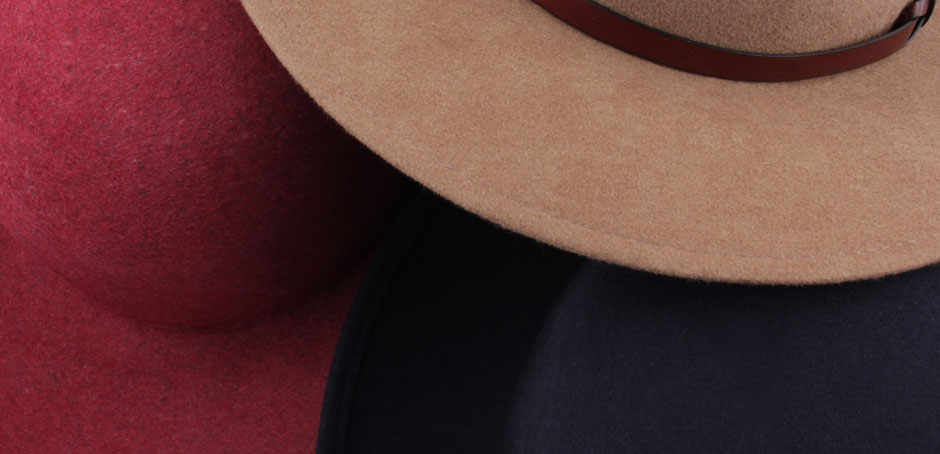
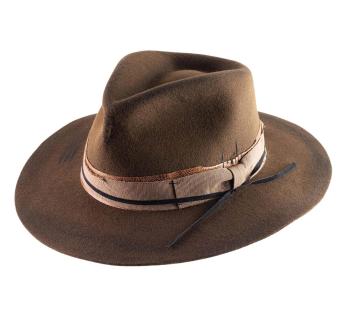
 Couture
Couture